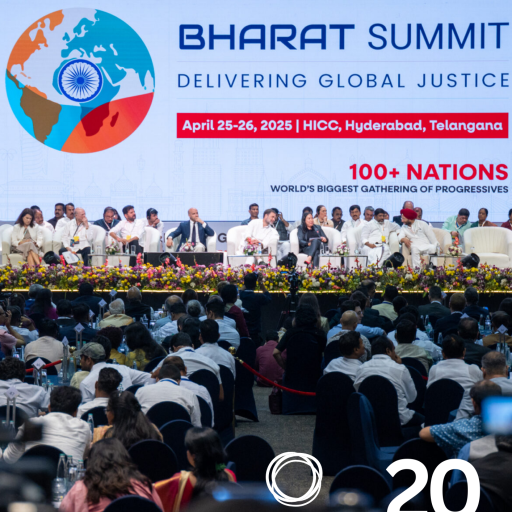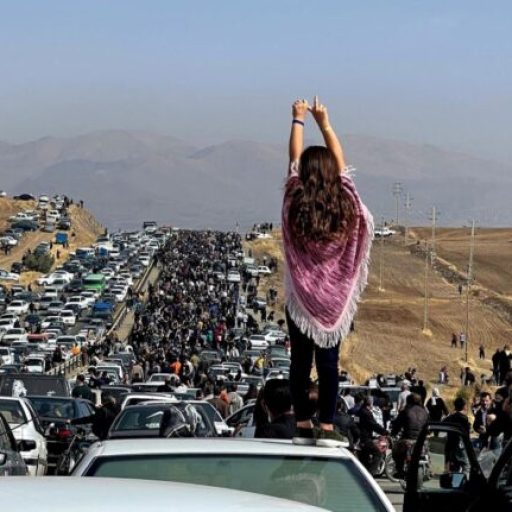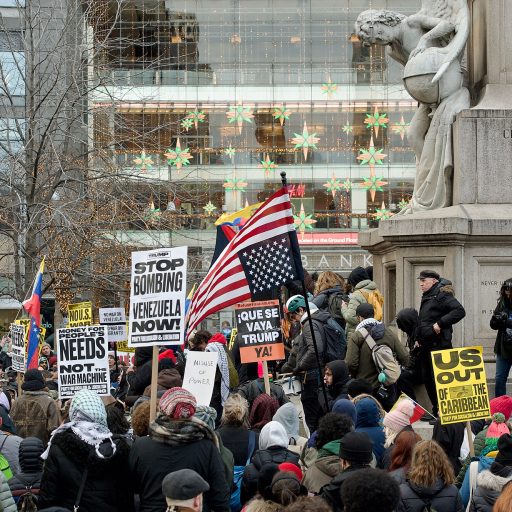By Socdem Asia
COVID-19 Pandemic exposes the crises of our healthcare system and economic system. Overwhelmed healthcare hospitals and healthcare facilities and the steep decline in economic output reveal a more troubling diagnosis of the global order. Decades of neoliberal policies has resulted in inequality in health services as manifested in privatized healthcare that offer the best medical treatments and services to those who can afford to pay while overworked and underfunded public health institutions cater to the poorer segments of society. For workers in the informal sectors, urban poor, peasants, and migrant labor, these public health services are their only recourse. Equally troubling is the lack of social security and safety nets for the majority of the working class also endangers not only their health but also their jobs and income. The existing precariousness of workers in highly contractual and irregular work rebranded as the “gig-economy” has fully materialized. Absent the protections of regular work and pay, union membership and unemployment benefits, such workers struggle to cope with the burden brought about by this pandemic. While the virus does not discriminate based on class, religion, sex and race, our societies acceptance and institutionalization of these ensure that the most vulnerable will be the most impacted by the pandemic while the most affluent will survive and flourish.
The Network for Social Democracy in Asia joins the international community in extending our sympathies to those whose lives and families have been adversely affected by this pandemic. We also join the world in paying tribute to all health workers, security personnel and all workers who are working in the front lines and risking their health to slow the pandemic.
The COVID-19 pandemic has now reached almost all regions of the globe and threatens to overwhelm both the developed and developing countries. As of the end of March, the total persons infected with the virus has reached more than 800,000 and is poised to reach 1,000,000. Despite the dizzying flurry of numbers and statistics, we must not lose sight that it is people who are bearing the full brunt of this crisis. In the immediate, as individuals we must observe the advice provided by the World Health Organization and national health bodies for social distancing, sanitation, and staying at home.
The World Bank in its report, “East Asia and the Pacific in the Time of COVID-19” places the region’s economic growth declining from 5.9% growth in 2019 to 2.1% for 2020. It also posits that 24 Million fewer people will escape poverty than if would have if the pandemic did not occur. A more dire economic situation could also push 11 Million people into poverty. The International Labour Organization also warns that 25 Million jobs could be lost worldwide.
While we give our support to our health workers and other workers in the front lines of the fight against COVID-19, such support rings hollow without a comprehensive package geared towards equipping our health workers with the necessary tools to care for people without risking their lives. This means ensuring mobilizing all resources available to government including enlisting private industry for the provision of Personal Protective Equipments (PPEs) such as face shields, respirators, face masks, and the like. Similarly, government must act fast to procure live-saving medicine and equipment such as ventilators which are either now in short supply in many countries. Health care workers must also be compensated for their work commensurate to the risk they are taking and to the availability of resources. While we push for these protections for our health workers, governments must ensure the public have accessibility to testing. It is only through mass testing can society be fully apprised of the extent of this pandemic and governments have the necessary data to make the proper decisions.
This pandemic has now taken a huge toll on the incomes of working people everywhere. Business, industry, and trade are now practically ground to a halt. We are now in a global economic crisis (some have argued an economic recession) and we must learn the lessons of the last economic crisis that the inadequate policies that only benefitted a few, many of them responsible for the crisis in the first place, should not be repeated. With the current context, those most at risk are the people in the margins of our economy and society. This puts workers in the informal sector with practically no income for the foreseeable future. Workers from the “gig economy,” freelance workers many of them young workers are also in a similar plight. Migrant labor is also at a great risk as cities and urban centers across Asia and the world have opted to take drastic measures such as lockdowns or community quarantines to severely limit social interaction and therefore slow the spread of the virus.
Countries are now in a dilemma of enforcing lockdowns and quarantine measures but at the same time knowing that this means risking the livelihood of the poor and the near poor. As such, it is important for government to enforce emergency cash transfers for the poor and all workers who may have lost their jobs or incomes decreased because of this pandemic. This is necessary to ensure that they have enough to survive through this pandemic. Likewise, government must also explore measures such as freezing of rent and mortgage payments to prevent the erosion of middle class’ and small businesses’ savings. The bottom line is that people must not be saddled with an added burden of bankruptcy or financial trouble while they are also fighting against this pandemic.
This crisis has exposed huge underlying problems in our systems specifically in our models of healthcare and economy. The global economic order, especially in the Asian region, turn towards neoliberal economics are the center of the causes why our healthcare systems are straining to provide healthcare for all. Serious discussion must be made in ensuring to reform our healthcare systems. Universal Healthcare must return to the mainstream of policy discussions.
Likewise, the prevailing economic model must be scrutinized and reformed. Safety nets for our workers should be readily available. This crisis has exposed the reality that behind the high growth economies of the Asian region many in the workforce are dangerously vulnerable of sinking into poverty and the poor are at great risk of food insecurity. A more humane economy and strong social welfare programs are necessary safeguards against a future economic crisis.
We are now in the midst of a global health crisis and we know that a global response is necessary. This crisis warrants greater international solidarity not less. When this pandemic finally reaches its peak and countries finally extricate themselves it will be necessary for these countries to lend their expertise and assistance to those countries who will still be struggling to battle the pandemic. Such international solidarity will also be necessary to salvage industries and workers from the looming economic crisis. The inadequacies and failings of our health and economic systems must be resolved with greater cooperation toward public access to needed resources, information, technology and emergency response.
Great health and economic crises such as this must be met with equally great ambitious solutions. Solutions that serve to expand rights and protections, not increase the ranks of the precarious and vulnerable. As mentioned previously, support for our health and other frontline workers, Universal healthcare, protection for livelihood and right to housing must be ensured. Alongside these, we assert that societies can build resilience to crisis by ensuring the following:
1. Full recognition of Workers’ Right to Organize and Unionize – Workers’ right to organize is important to defend against abuse. By recognizing and providing the protections for workers to form unions, we ensure that workers are able to collectively bargain for benefits and wages and at the same time exact protections and safety nets which are very much needed as shown by the existing pandemic. Moreover, workers must be given the support needed to form cooperatives. Cooperatives are crucial in not only ensuring accessibility and supply of food and medicine for working class communities but they also serve as support organizations for communities during times of crisis.
2. Government intervention to ease burden of loans and easing of mortgages, job gauarantee – As mentioned, governments must step in to initiate programs to address the impact of this crisis on businesses and industry specifically in restructuring loans and leases. These times of crisis must also mean people are able to keep their employment and their means of livelihood. Government must intervene to prevent massive unemployment and possible labor rights violations.
3. Guaranteed Living Wage, Loans to Small Business – The world can only extricate itself from this health and economic crisis when workers and small business owners are guaranteed sufficient income to be able to provide for themselves. A guaranteed living wage, especially post-crisis will guarantee an expansion of the middle class many and have a knock off effect of stimulating economies. Alongside this, small business owners must be provided with the necessary loans with low interest rates to allow them to revive their livelihoods which have been obliterated by this pandemic.
4. Progressive taxation to sustain welfare programs – The increase in public spending that will be needed to revitalize our health systems and revive shuttered industries and businesses needs sufficient income sources. It is important that those most vulnerable and impacted by the crisis should not be overburdened with taxation. In connection to this, those whose wealth and capital have allowed them to survive and thrive through this crisis should have the social responsibility of taking on more of the responsibility of financing public spending. This is not a matter charity but a pragmatic approach to address the economic realities.
5. Food Security and Right to Food – No person should be subjected to hunger, malnutrition, or food insecurity. This is true with or without a pandemic or health crisis. Governments and stakeholders must be able to stockpile food supplies and guarantee transport of agricultural products to consumers. Fair trade on agricultural and food products must come as a condition while preventing scarcity and protecting small farmers from poverty and hunger.
6. Social Protection Floor – The social security systems must be under public control and must guarantee that people will not fall be further excluded in times of crisis. Social guarantees should cover the broadest segment to alleviate poverty and protect from further exclusion the children, the elderly and the unemployed. A holistic strategy in combatting crises and lessening its apparent impact must be shaped where no one falls behind.
This crisis is also a test to our democracies and liberties. We call on the public to reject draconian measures that are being used as a measure to combat the corona-crisis. We must be vigilant against attempts to use the pandemic towards enacting more draconian measures and eroding rights. Especially in Asia where many authoritarian and populist regimes exist, citizens must close ranks to guarantee their rights to privacy, information, and to dissent are not stifled. It is in these times that government needs more oversight and accountability not less of it. Corrupt public officials and profiteers will no doubt take advantage of the lack of transparency to consolidate their power and expand their wealth.
It is urgent that heads of governments must exercise the political leadership and the political will needed to fight this pandemic. Leaders must set the example needed in fighting the pandemic and laying down the massive changes in our economies and politics.
Individuals, societies and countries will undoubtedly look back and see the immense historical value of this pandemic and its attendant economic crisis. It is likely that many will recollect and see these past months as marking the beginning or end of a period. It is imperative that social democrats and progressives are able to push for a progressive vision after this crisis. Only a humane and just society and future is our best vaccine against the pandemic of inequality and poverty.




![Headline: Hier bitte das Thema [ Headline] 24.10.25, Lucerne, Switzerland, Progressive Alliance PA women conference](https://progressive-alliance.info/wp-content/uploads/elementor/thumbs/MAW251024mw859033AdobeRGB-scaled-recq0qxu9kb6pncdi2i7wo6ttne03ppnu58zxxdc74.jpg)
![Headline: Hier bitte das Thema [ Headline] 25.10.25, Lucerne, Switzerland, Progressive Alliance PA women conference](https://progressive-alliance.info/wp-content/uploads/elementor/thumbs/MAW251025mw860402AdobeRGB-scaled-recs8kegm3kqlleif2kq512xsjz2qfl3t7kc0t0tts.jpg)